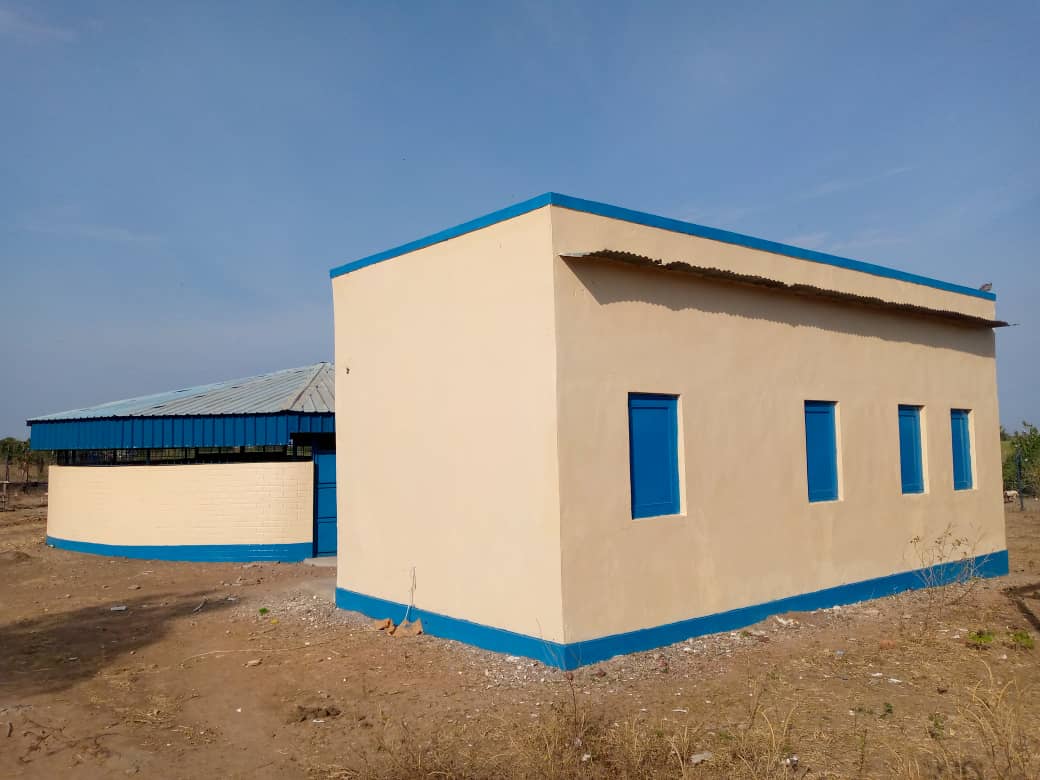-
Who We Are
WHO WE AREThe International Organization for Migration (IOM) is part of the United Nations System as the leading inter-governmental organization promoting since 1951 humane and orderly migration for the benefit of all, with 175 member states and a presence in over 100 countries. IOM has had a presence in South Sudan since 2011.
About
About
IOM Global
IOM Global
-
Our Work
Our WorkAs the leading inter-governmental organization promoting humane and orderly migration, IOM plays a key role to support the achievement of the 2030 Agenda through different areas of intervention that connect both humanitarian assistance and sustainable development. IOM South Sudan provides a comprehensive response to the humanitarian needs of migrants, internally displaced persons, returnees and host communities.
Cross-cutting (Global)
Cross-cutting (Global)
- Data and Resources
- Take Action
- 2030 Agenda
IOM hands over a rehabilitated traditional court facility in Abyei Administrative Area
Abyei — The International Organization for Migration (IOM) has handed over a rehabilitated Traditional Court facility to authorities in Abyei Administrative Area.
The refurbished facility consists of a courtroom, a two-room office building, a new four-door pit latrine for women, an existing two-room pit latrine for men as well as a perimeter fence.
This is the second court facility that IOM has renovated and handed over to authorities in Abyei following the completion of the traditional court in Agok in November 2021.
“Customary law courts handle complex cases that are difficult to solve in civil courts,” said Chol Thuc Chol, Deputy Chief Administrator and Minister for Local government, Law Enforcement and traditional justice, during the handover ceremony that took place on 30th December 2021. “We recognize IOM’s continuous support to the community.”

In Abyei, IOM has supported the customary law review process by facilitating workshops that sought to ascertain the status of the Ngok Dinka customary laws and, where possible, considered reviews and suggested amendments. Existing traditional chiefs and court structures were also examined, streamlined, and reformed to establish the local customary law courts with judicial warrants.
Many disputes that occur between community members in Abyei Administrative Area are arbitrated by traditional leaders in line with well-respected norms and traditions.
“The situation in Abyei would have been worse if customary law courts were not rehabilitated as the chiefs would have nowhere to meet to mediate arising disputes. These facilities go beyond just physical structures; they are the cornerstone of peacebuilding and peaceful coexistence within our communities,” added Chol Thuc.
Prior to the rehabilitation of these courts, chiefs would meet under trees exposed to the harsh weather – sun or rain.
“It was the commitment of the chiefs working under trees to provide justice through the application of Ngok traditional laws, values and norms to its community in promoting peace and reconciliation that attracted organizations to support them.”

The head of the Community Protection Committee (CPC), John Bak believes traditional courts are helping in reducing the workload for the CPC as well as solving a lot of cases, which in turn help community protection efforts.
“Without the customary law courts, the CPC would be overloaded with work,” said Bak, thanking IOM for supporting the rehabilitation of the traditional courts in the area.
“We appreciate the repair of existing latrines, construction of new latrines, repair of the court and office buildings and also improvements in our fencing. Doors for the courtroom are now opening well and we appreciate it,” said the paramount Chief, Bulabek Deng Kuol.
“IOM remains committed to support systems that contribute towards peaceful coexistence in the Abyei Administrative Area. With funding from USAID and the Kingdom of Netherlands, IOM was able to support both this rehabilitation and the recent successful Ngok Dinka Customary Law Review process. IOM’s continuous efforts to ensure that there are facilities available to enable the court systems to function are a demonstration of our commitment,” said IOM’s Program Engineer, Jackson Meshack.
This project was implemented by IOM's Transition and Recovery Unit with funding from USAID and the Kingdom of Netherlands.
Written by Jale Richard, IOM South Sudan Media and Communications Assistant. Email: jasantos@iom.int
